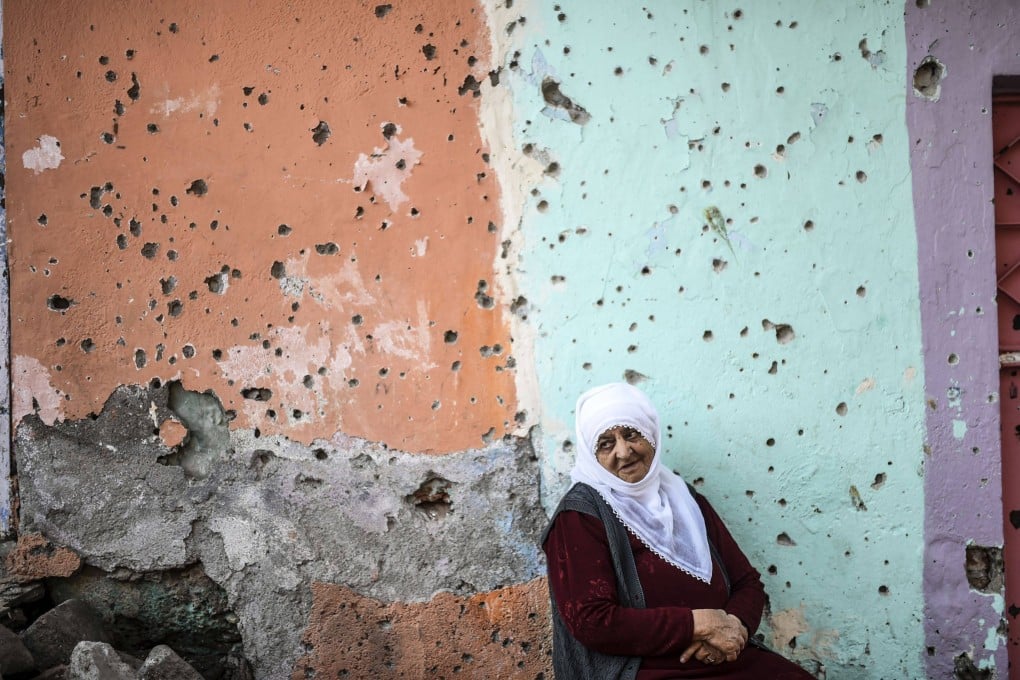Syllabus
GS 2: Effect of policies and politics of developed and developing countries on India’s interests
Context: Recently, the Kurdistan Workers’ Party (PKK) has announced disbandment and end its 40-year armed conflict with Turkey, calling for a democratic resolution to the Kurdish issue.
More on the News
- The announcement came after a congress was held in northern Iraq.
- The decision follows a February call to disband from Abdullah Ocalan, the PKK’s jailed leader, who has been imprisoned since 1999 on an island near Istanbul. The group confirmed that Ocalan would manage the disbanding process.
- A senior PKK official confirmed that all military operations would cease immediately. However, the handover of weapons would depend on the Turkish government’s response to the group’s demands regarding Kurdish rights and the future of PKK fighters.
- The PKK’s decision could boost Turkey’s political and economic stability and encourage moves to ease tensions in neighbouring Iraq and Syria,

The Kurdistan Workers’ Party (PKK)
- The Kurdistan Workers’ Party (PKK) is a Kurdish group based in northern Iraq.
- The group was founded by Abdullah Ocalan in 1978 as a nationalist and revolutionary organisation, based on Marxist Leninist ideals.
- It began an armed conflict with the Turkish government in 1984.
- The PKK insurgency initially aimed to create an independent homeland for Kurds, who account for about 20% of Turkey’s population.
- Later, its demands shifted to seeking more rights and autonomy for Kurds within Turkey.
- The PKK is listed as a terrorist organization internationally by numerous countries, including the members of the European Union and others such as United States, Canada and Australia.
Who are the Kurds:
- Origins: The Kurds descend from Indo-Europen tribes who settled among the native inhabitants of the Zagros Mountains over millennia.
- Identity: Historically nomadic, the term Kurd emerged by the 7th century AD during the Arab conquests, after which they adopted Islam (mostly Sunni).
- Geographic Distribution: The world’s largest stateless ethnic group, Kurds primarily inhabit: Turkey (43% of all Kurds, 20% of Turkey’s population), Iran (31%), Iraq (18%), Syria (6%), Caucasus region (Armenia, Azerbaijan, 2%)
- Language & Distinctiveness: Speak Kurdish, an Indo-European language with multiple dialects, unrelated to Turkish or Arabic.
- Political Status: While dispersed across four countries, Kurds continue advocating for autonomy or independence, particularly in Iraq (Kurdistan Region) and Syria (Rojava).
What is Kurdistan:
- The Kurdistan (“Land of the Kurds”) designation refers to an area of Kurdish settlement that roughly includes the mountain systems of the Zagros and the eastern extension of the Taurus.
- Following World War I, world powers promised the Kurds their own homeland, but this promise was never fulfilled.
- The declaration of the Fourteen Points by the former President of the United States Woodrow Wilson accorded non-Turkish minorities the right to “autonomous development”.
- Further as argued, the Treaty of Sèvres (1920) explicitly provided for “local autonomy for the predominantly Kurdish areas” (Article 62), and even promulgated the possibility that “the Kurdish peoples” might be granted “independence from Turkey” (Article 64).

